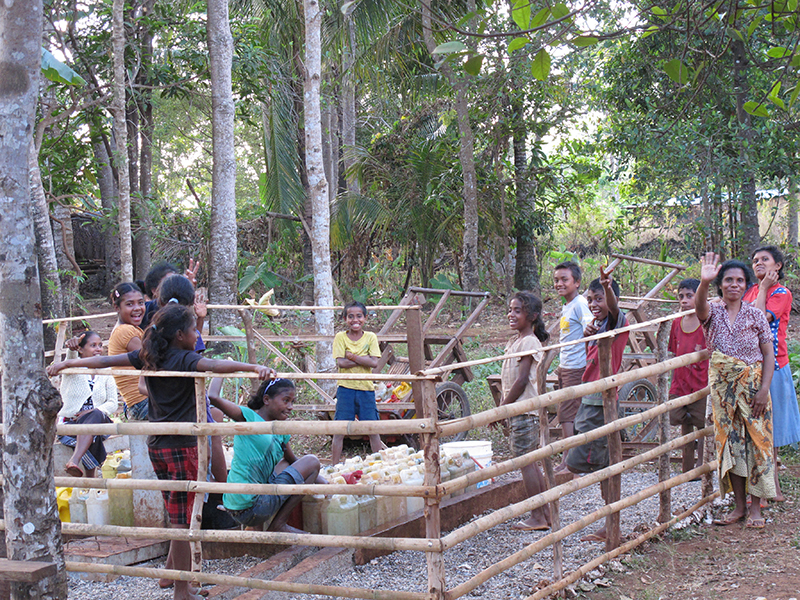Vulnerability of groundwater to climate change impacts in Timor-Leste
Page last updated:4 November 2021
Project completed 2012
Background
Timor-Leste's water security is heavily dependent on groundwater resources that are sensitive to climate change. With Timor-Leste's groundwater supplies likely to become increasingly vulnerable to shortages and seawater intrusion with changes in rainfall patterns and sea-level rise, it is critical that safe and reliable water is maintained for communities and industries.
Geoscience Australia worked with the Government of Timor-Leste's National Directorate for Water Resource Management (DNGRA) and the Rural Water Supply and Sanitation Program (BESIK) to:
- Assess the vulnerability of groundwater supplies to climate change impacts
- Develop a national hydrogeological framework outlining how to collect, analyse, map and monitor groundwater
- Map aquifers and help improve development planning
- Implement training programs for monitoring and analysing groundwater data and maps.
The project was an Australian Government initiative under the Pacific Adaptation Strateqy Assistance Program, administered by the Department of the Environment.
Outcomes
- Water agencies in Timor-Leste have improved knowledge and skills for monitoring and management of groundwater resources
- Regional awareness and understanding of the potential impacts of climate change on groundwater resources is increased.
Outputs
Major outputs from the project include the first national hydrogeological map of Timor-Leste; a national groundwater monitoring field guide; catalogue of datasets; GIS training methods; short videos; and on-site training to facilitate the ongoing monitoring of groundwater in Timor-Leste.
Geoscience Australia has published all the Timor-Leste groundwater project outputs including a series of short videos:
- Vulnerability Assessment of Climate Change Impacts on Groundwater Resources in Timor-Leste: Summary Report
- Catalogue of Datasets and Data Records: Assessment of Climate Change Impacts on Groundwater in Timor-Leste
- GIS training methods, QGIS version (free software): Assessment of Climate Change Impacts on Groundwater in Timor-Leste
- National Groundwater Monitoring Guide for Timor-Leste
- Groundwater in Timor-Leste videos: English and Tetum
